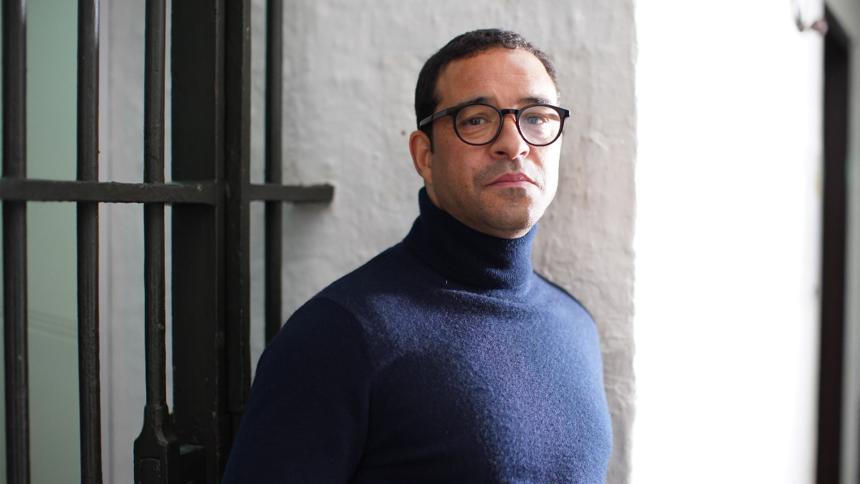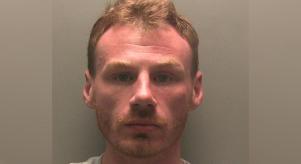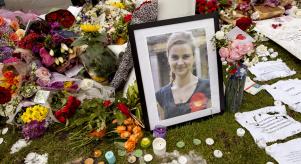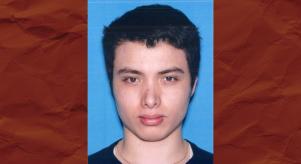
Raphael Rowe and the M25 Three: One of Britain's worst miscarriages of justice
In March 1990, three young Black men were put on trial for a lethal crime spree around the M25 motorway two years earlier.
Despite a total lack of forensic evidence and clear weaknesses in the prosecution’s case, Raphael Rowe, Randolph Johnson, and Michael Davis were found guilty. Declaring them to be “evil and dangerous men”, the judge sent them all down for life.
More than a decade passed before the convictions were found to be unsafe, but the relief of the men’s release was marred by the words of the Court of Appeal judges, who emphasised that “this is not a finding of innocence, far from it”.
So what exactly happened on the fateful date of 16th December 1988, and why was the fallout so controversial?
Crime spree
It was in the very early hours of the morning when three men wearing balaclavas approached a parked car near Chelsham in Surrey, not far from the M25. Inside the vehicle, two men – Peter Hurburgh and Alan Eley – were having sex. They were dragged from the car and savagely beaten before the assailants poured petrol around them. The terrifying ordeal caused Eley to pass out, while Hurburgh died from injuries sustained in the attack.
Meanwhile, having stolen Hurburgh’s vehicle, the three attackers drove approximately 10 miles to Oxted. Here, they broke into a house where a retired couple, the Napiers, lived with their adult son, Timothy. As the men ransacked the house, a tussle broke out, leading to Timothy Napier being seriously injured. His mother was told that if she refused to remove her rings, her fingers would be cut off.
The men then made off in Timothy's car, driving 20 miles to Fetcham where they carried out another home invasion. Victims Rosemary Spicer and Peter Almond were tied up and gagged as the men looted the property. This was the final crime of the night.
Case against the M25 Three
Numerous arrests were made in the days and weeks following the rampage. Among the men taken in by police were Raphael Rowe, Randolph Johnson, and Michael Davis. Items stolen from the home invasions were found at the probation hostel where Rowe and Davis were living.
Other men who’d been living at the probation hostel testified against the so-called M25 Three
Pointing out other ambiguities in the case against the men, the judge reminded the jury that much of the evidence was disputed and that there was “considerable uncertainty and inconsistency in important areas”.
Nevertheless, the three men were controversially found guilty.
Appealing the verdict
The M25 Three immediately lodged an appeal, based largely on the unreliability of the probation hostel witnesses and the remarks on skin colour by the victims. Heard in 1993, the appeal was flatly rejected, with the court saying there was “no basis for saying there is even a lurking doubt about the safety of the convictions”.
A few years later, the Criminal Cases Review Commission looked into the case. Its report found that one of the probation hostel witnesses for the prosecution was a registered police informant who’d discussed the possibility of a cash reward for his cooperation. What’s more, he’d originally told detectives that one of the three attackers was not Johnson, but another resident of the hostel who had a robbery conviction. The Court of Appeal later described the informant's involvement as a “profoundly disturbing” aspect of the case that dented the credibility of the police.
In the year 2000, the European Court of Human Rights gave its judgement on the case. It highlighted serious issues such as the failure to disclose that one of the witnesses was a registered informant who’d given conflicting information to the police.
Later that year, the convictions of the M25 Three were ruled to be unsafe by the Court of Appeal, though the judges were at pains to state this didn’t necessarily mean the men were innocent. They even described the case against the M25 Three as “formidable”.
Aftermath
The successful appeal was a bittersweet victory for the men. Speaking soon after his release, Rowe dubbed the judges’ grudging statements “diabolical”, saying “I am free now, but it’s as if I'm still inside. I'm still trying to get my voice heard.” He later described how the police ignored evidence and “moved the goalposts” to ensure he, Davis and Johnson would get convicted.








